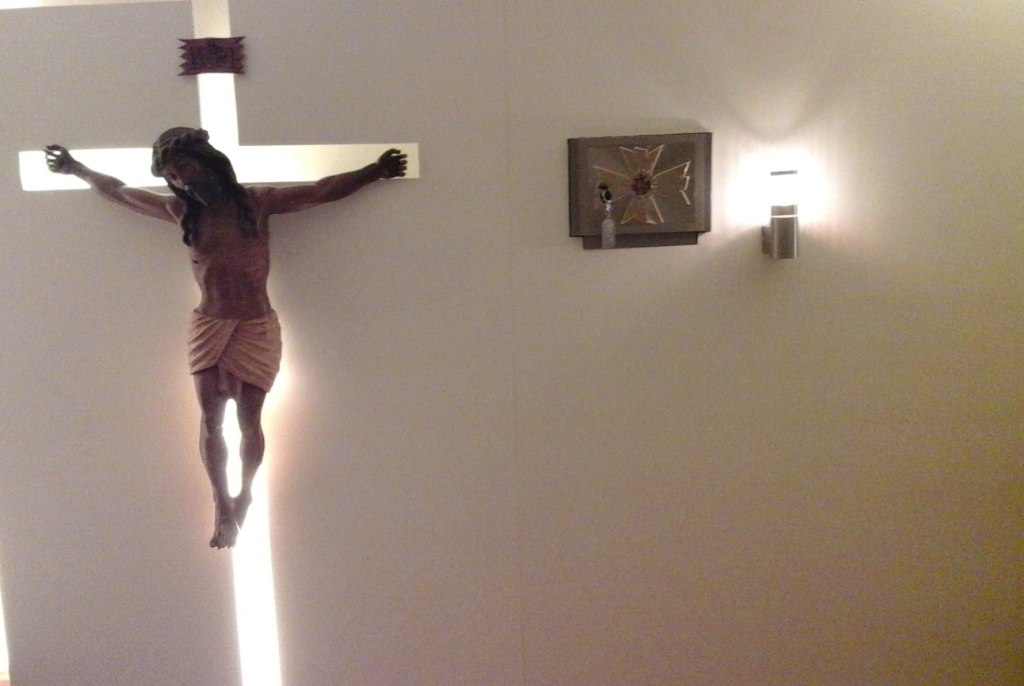178 total views
Our readings today are a parable of the Church, of what we should and would be as the Body of Christ celebrating the Solemnity of St. Peter and St. Paul, the pillars of the Church.
Despite their personalities being poles apart while their social, cultural and religious backgrounds were greatly different, both men were won over by Jesus Christ to proclaim his good news of salvation, eventually dying as martyrs like the Lord. Both apostles displayed deep trust in Jesus Christ whom they have come to know on a personal basis.
Let us reflect first on St. Peter, the “prince of the Apostles” and servant of all. Notice how Peter could sleep soundly inside prison, even between two soldiers as narrated to us by Luke.

On the very night before Herod was to bring him to trial, Peter, secured by double chains, was sleeping between two soldiers, while outside the door guards kept watch on the prison. Suddenly the angel of the Lord stood by him and a light shone in the cell. He tapped Peter on the side and awakened him, saying, “Get up quickly.” The chains fell from his wrists. The angel said to him, “Put on your belt and your sandals.” He did so. Then he said to him, “Put on your cloak and follow me.” So he followed him out, not realizing that what was happening through the angel was real; he thought he was seeing a vision.
Acts 12:6-9
It is very amusing, even funny, but facts can truly be stranger than fiction!
How could Peter sleep soundly after being arrested and thrown into prison with two soldiers sandwiching him inside his cell while a host of other guards secured the area outside?
We think again of St. Joseph sleeping soundly in a similar critical situation when he decided to silently leave Mary who was found pregnant with a child before they were married. Too often, we find it difficult to sleep when we have problems because we cannot decide decisively as we lack trust and faith in God. Both Joseph and Peter slept soundly under critical situations because of their complete trust and faith in God.
But, Peter shows us another dimension of his trust in God – his total trust also in the Church, believing that they were all praying for him.

It is a beautiful imagery of the Church then and now, always in darkness like during night time when Peter was imprisoned. And that is the parable of this scene: it is always a time of Exodus for us in the Church, of passing over from every trials and difficulties, always trusting our leaders, trusting our faithful and most of all, entrusting everything to God!
If there is one thing most needed these days in our Church especially in the Philippines is this attitude of being in an Exodus, of exiting from our excesses from the past, of submitting ourselves more to God than to our own thoughts and plans especially in politics that we have forgotten the more crucial proclamation of the gospel by reaching out to the grassroots level, of witnessing our faith in God instead of lording it over among people, exerting our influences. The recent elections is a dark period of our imprisonment with secular thoughts and dispositions, forgetting our sphere of influence in spiritual matters.
May we, both clergy and laypeople, imitate Peter by abandoning everything to God in deep prayers, following God not our plans as symbolized by his putting on his belt and sandals as commanded by the angel.

Meanwhile, we find the same kind of total abandonment by Paul of himself to God while in prison where he wrote some of his finest letters like this Second Letter to Timothy, the last of his captivity letters which we heard in the second reading today.
Imagine the stress of being in prison but without any hint of duress on Paul while awaiting death amid all humiliations with his incomparable eloquence:
I, Paul, am already being poured out like a libation, and the time of my departure is at hand. I have competed well; I have finished the race; I have kept the faith. The Lord stood by me and gave me strength, so that through me the proclamation might be completed and all the Gentiles might hear it. The Lord will rescue me from every evil threat and will bring me safe to his heavenly kingdom. To him be glory forever and ever. Amen.
2 Timothy 4:6-7, 17, 18
Very evident in all his letters, Paul had always expressed his total abandonment of self to Christ, of his faith in God. Here in this portion of his second letter to Timothy, we find two important lessons so apt in our celebration of this solemnity.
First is the nature of Christian life lived as a worship: am already being poured out like a libation. That is what I like most with Paul, his mastery of language, always using the most perfect words to express his experiences and ideas. For some, especially first-time readers of Paul, they may find it so “mayabang” as we say in Filipino. But no. For me, Paul is the most sincere and most humble writer in the world of letters then and now.
A libation is a drink offered to gods in ancient Greece and Rome. Here, Paul as he approached death, summarized his entire life as an offering to God that we also see in his other writings.
And that is the challenge of this solemnity to us, that we live our lives as a form of worship to God.

Our very lives in itself are a prayer, always centered on God, something so foolish when we go by the standards of the world today that is all show – palabas – with nothing substantial inside because only money and fame matter. Paul was very much like Peter who lived their lives as prayers that like Christ in the end, both offered the highest offering of all, martyrdom.
Second thing we find in this short but rich excerpt from Paul’s letter to Timothy is the deeper meaning of death as a passage to heaven, “The Lord will rescue me from every evil threat and will bring me safe to his heavenly kingdom”. Like the gospel last Sunday when we heard Jesus “resolutely determined to journey to Jerusalem” wherein Jesus freely chose to face his death to fulfill his mission and express his deep love for the Father and for us. To the Philippians Paul declared that “for me life is Christ, death is gain”. Here in his letter to Timothy, Paul freely accepts his death, making it a blessing for others, something we must emulate. Instead of having those bucket lists of things to do before dying, Paul is teaching us death comes in every present moment that we must always prepare for its happening so that the next generation may continue the good things we have started. And that is exactly how until now the Church’s missionary zeal is kept aflame by Paul’s letters and works.

In the gospel proclaimed today about the investiture of Peter as the head of the church of Christ, we heard Jesus entrusting to him “the keys to the kingdom of heaven that whatever he binds on earth shall be bound in heaven and whatever he loosens on earth shall be loosed in heaven” (cf. Mt.16:19).
As I end this reflection for this Solemnity of Saints Peter and Paul, I wish to use the word “key” in a different sense – the key to unlocking how Peter and Paul achieved so much for God and for the Church lies in their personal relationship with Jesus Christ. Both apostles who have become the pillars of the Church today truly experienced Jesus in their lives in the most personal and in timate manner that in the process they have mirrored the true Christ himself.
The problems we have in the Church today, notably the declining number of the faithful following an all-time low in credibility is largely due to the many wrong answers we give Jesus to his question “who do people say I am?” Many Christians are losing their faith and interest in the Church because of the mixed signals we give them on what do we say who Jesus is.
The Church grew so wide during the time of Peter and Paul because both apostles shared the true Jesus Christ not only in their words but also in their deeds. May we have the courage to open ourselves to Jesus Christ again so we may know him more clearly, love him dearly, follow him closely and preach him daily. Amen.


















